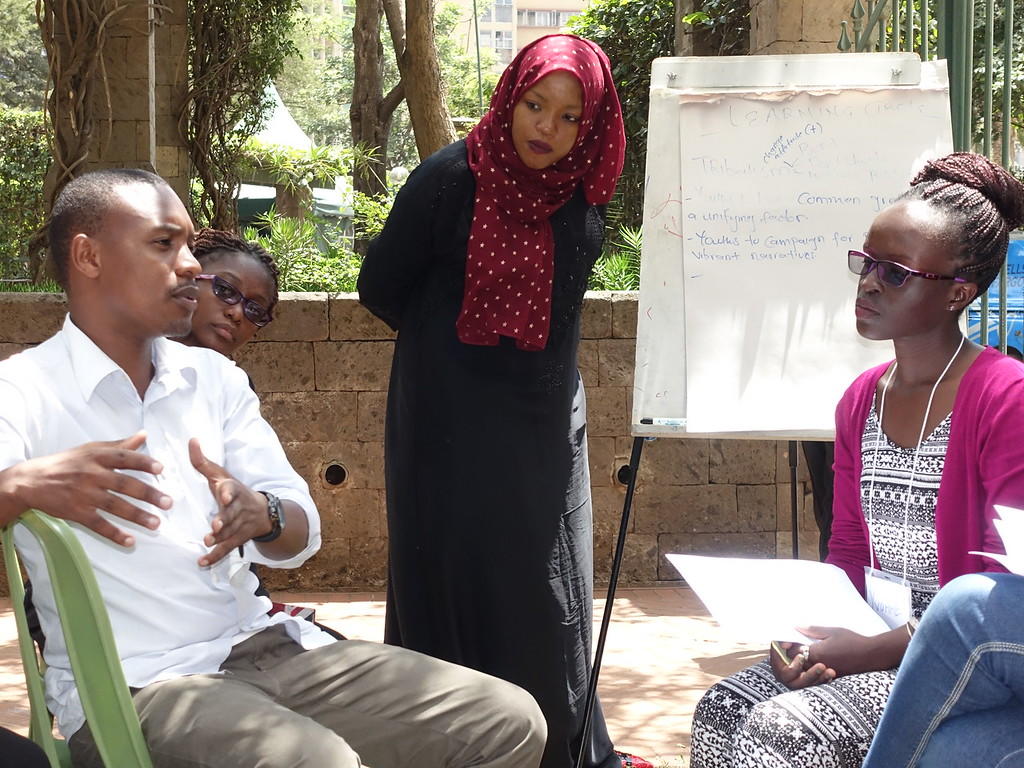Design, Monitoring and Evaluation for Programming in Fragile Environments: Micro-Course
This micro-course, offered in partnership between USIP and the Geneva Centre for Security Policy (GCSP), presents an overview of essential principles in design, monitoring, and evaluation practice. It defines the process of crafting a theory of change and key data collection methods.

Course Overview & Key Objectives
This micro-course, offered in partnership between USIP and the Geneva Centre for Security Policy (GCSP), presents an overview of essential principles in design, monitoring, and evaluation practice. It defines the process of crafting a theory of change and key data collection methods. Note: This course is not for monitoring and evaluation professionals, but rather for individuals who manage project and programs. It was designed and developed in partnership between USIP and the Geneva Centre for Security Policy.
By the end of this micro-course, participants will be able to achieve the following objectives:
- Define and distinguish between monitoring and evaluation;
- Describe how to develop sound theories of change for peacebuilding programs;
- Identify how to develop quality evaluation questions and data collection methods; and
- Identify practical tips to overcome common DM&E challenges.
Overview Video
Click on the video below for an overview of the course.
If you cannot view the video, click here.
Section 1 – Introduction
Introduces the importance of design, monitoring and evaluation through real-world stories and asks the learner to reflect on their prior knowledge.
Section 2 – Pillars
Examines the critical role that design, monitoring, and evaluation play in the work of peacebuilding, security, and development.
Section 3 – Tools
Addresses the foundations of strong project design to enable effective monitoring and evaluation.
Section 4 – Application
Focuses on the different contexts in which we work and how they impact the implementation of DM&E in practice, introduces the concept of “complexity” and the associated challenges of conducting DM&E in difficult, fluid, and fragile environments and addresses institutional factors which also impact the success of DM&E projects.
Section 5 - Conclusion
Provides a space for self-reflection and tests retention while earning a certificate.
Instructors and Guest Experts
Instructors
- Andy Blum, Executive Director, Joan B. Kroc Institute for Peace and Justice, University of San Diego
- Caty Clement, Associate Fellow, Geneva Centre for Security Policy
- Ray Rist, Co-Creator and Co-Director, International Program for Development Evaluation Training (IPDET)
Guest Experts
- Joseph Hewitt, Vice President for Policy, Learning and Strategy, U.S. Institute of Peace
- Ted Paterson, Independent Consultant, Geneva International Centre for Humanitarian Demining
- Michael Zanchelli, Former Program Officer, U.S. Institute of Peace



